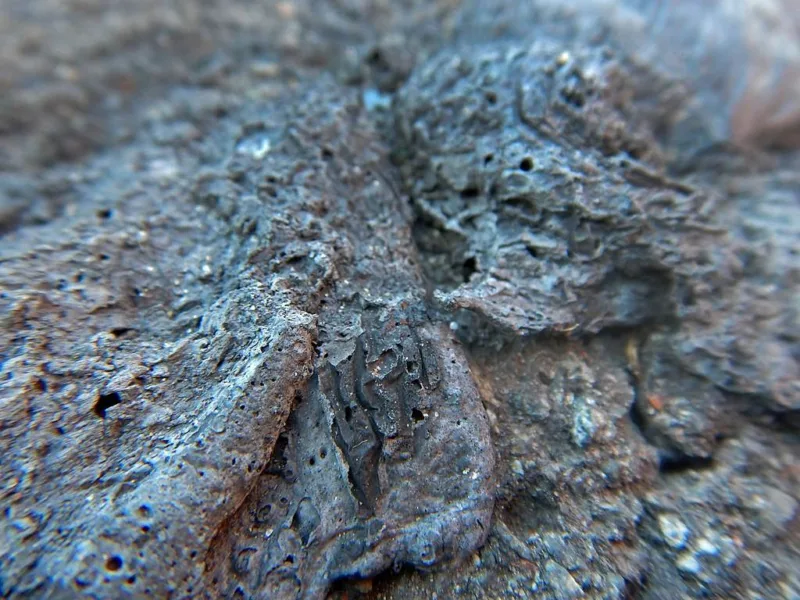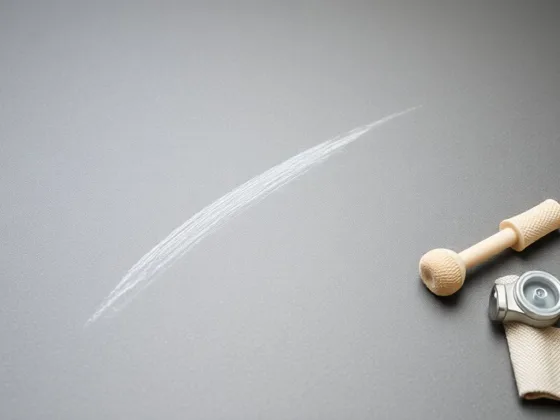Table of Contents Show
Introduction
Detecting a burning plastic smell in your house can be alarming and should never be ignored. This distinct odour often signals that something is wrong and needs immediate attention to ensure the safety and well-being of everyone in the household.
Addressing the issue promptly is crucial. Ignoring this smell can lead to severe consequences, including:
- Fire hazards: The burning smell might indicate an overheating appliance or faulty wiring, both of which can ignite and cause a fire.
- Toxic fumes: Burning plastic releases harmful chemicals into the air, which can be dangerous to inhale.
Understanding the potential dangers associated with a burning plastic smell highlights the importance of taking swift action. Identifying the source and resolving it not only protects your home but also safeguards your health.
Causes of a Burning Plastic Smell in Your House

Understanding the causes of a burning plastic smell is crucial for addressing the issue effectively. Here are some common sources:
1. Burnt Plastic Objects
Items, like melted plastic bags or utensils left on hot surfaces, can release noxious odours. For example, accidentally leaving a plastic spoon on a stove burner can result in an immediate and pungent smell. Proper disposal involves safely removing the item once it cools and ensuring similar items are kept away from heat sources.
2. Faulty Electrical Wiring
Short circuits or overheated wires can create a burning smell. Signs include flickering lights, frequent tripped circuit breakers, or scorch marks around outlets. Professional repairs are essential to address these dangers and prevent potential fire hazards.
3. Malfunctioning HVAC Systems and Furnaces
Dust buildup or mechanical issues within HVAC systems and furnaces can cause burning odours. Regular maintenance, like cleaning filters and inspecting components, helps keep these systems running smoothly and odour-free.
4. Overheating Appliances
Old or improperly used appliances may emit a burning plastic scent. For instance, an overworked microwave or an aging refrigerator motor can generate such smells. Inspecting these appliances and considering replacements when necessary ensures safety.
5. Overloaded Wall Outlets
Excessive electrical load on wall outlets can lead to melted wires and smoky smells. Using power strips to distribute electrical load more evenly mitigates these risks.
Recognizing these causes enables timely intervention, ensuring a safer living environment for you and your family.
Assessing the Situation: Is It an Emergency?
When you smell burning plastic in your house, it’s important to quickly assess the situation to determine if it’s an emergency or not. Here’s what you need to do:
Step 1: Identify Signs of a Real Fire
The first thing you should look out for are signs of an actual fire. These signs include:
- Flames: If you see any visible flames, it’s a clear indication of a serious fire hazard.
- Heavy Smoke: Thick, black smoke suggests that materials are actively burning and producing toxic fumes.
Step 2: Take Immediate Action if You See Flames or Heavy Smoke
If you encounter either of these signs, it’s crucial to act swiftly and prioritize your safety:
- Activate Fire Alarms: Make sure that all fire alarms in your house are working properly to alert everyone.
- Evacuate Safely: Leave the building immediately and gather at a prearranged safe location outside.
- Call 911: Contact emergency services right away and provide them with accurate information about the situation.
Step 3: Precautions for the Smell of Burning Plastic Without Visible Fire
In cases where there is no visible fire but you still detect a burning plastic smell, follow these precautionary steps:
- Turn Off Affected Appliances: Safely switch off any appliances that might be overheating or malfunctioning.
- Unplug Devices: Disconnect these devices from their power source to prevent further damage or risk.
Why Prompt Evaluation Matters
Evaluating the situation promptly can help mitigate potential dangers and ensure everyone’s safety. Immediate action is crucial when dealing with unusual odours that hint at possible electrical issues or overheating appliances.
What to Do When You Encounter a Burning Plastic Smell
Immediate actions for burning plastic smell are crucial to prevent potential hazards. The first step is identifying and removing the source of the scent to mitigate its spread.
1. Safely Disposing of Burnt Plastic
- Allow the burnt plastic to cool completely before handling it.
- Use protective gloves to avoid skin contact with any toxic residues.
- Place the cooled, burnt plastic in a sealable plastic bag for disposal.
- Dispose of the bag in an outdoor trash bin to ensure no lingering odours remain indoors.
2. Shutting Down Faulty Appliances
- Identify the appliance emitting the burning plastic smell.
- Turn off the appliance immediately using its power switch.
- Unplug the appliance from the wall outlet to cut off any electrical supply.
- Avoid using the appliance until it has been inspected and repaired by a professional.
3. Seeking Professional Help
- Contact a licensed electrician to investigate any underlying wiring issues.
- Avoid attempting any electrical repairs yourself unless you have proper expertise; this ensures safety and compliance with local regulations.
Removing the source of the smell, turning off and unplugging appliances, and calling an electrician are vital steps in addressing this issue.
Getting Rid of Lingering Burning Plastic Smells
Getting rid of residual smells after dealing with the source is essential for improving indoor air quality. Here are some effective methods to eliminate those lingering odours:
1. Ventilation
Ventilation should be your first step. Open windows and use fans to circulate fresh air throughout the space. This will help disperse any remaining smell and bring in clean outdoor air.
2. Using Air Purifiers
Air purifiers can be very helpful in removing pollutants from the air. Look for models that have HEPA filters specifically designed to capture smaller particles, including the ones responsible for lingering odours.
3. Using White Vinegar
Another effective method is using white vinegar. Place bowls filled with white vinegar around the areas affected by the smell. White vinegar acts as a natural odour absorber and can gradually neutralize unpleasant smells over time.
By combining these techniques, you can ensure a cleaner, fresher environment while protecting your home from potential risks associated with burning plastic smells.
Cleaning Surfaces and Improving Indoor Air Quality
Cleaning affected surfaces is crucial to remove odour particles after encountering a burning plastic smell. Leftover residues can cling to furniture, walls, and other surfaces, perpetuating the unpleasant scent.
Recommended Cleaning Solution
Using a simple solution of dishwashing liquid and water can effectively clean these areas:
- Mix a few drops of dishwashing liquid with warm water.
- Use a soft cloth or sponge to wipe down furniture, walls, and other affected surfaces.
- Rinse the cloth or sponge frequently to prevent spreading the odour further.
- Dry the cleaned areas thoroughly to avoid moisture build-up.
Maintaining Proper Ventilation
Good airflow helps dissipate odours more quickly and improves indoor air quality:
- Open windows whenever possible to allow fresh air circulation.
- Utilize exhaust fans in kitchens and bathrooms to expel stale air.
- Keep interior doors open to promote natural ventilation throughout the house.
Proper ventilation not only helps eliminate lingering smells but also ensures a healthier living environment by reducing indoor pollutants.
Preventive Measures for Avoiding Future Incidents
Implementing preventive measures against burning plastic smells is crucial to maintaining a safe and odour-free home environment. Regular maintenance and mindful practices can significantly reduce the risk of encountering such unpleasant odours.
1. Regular Cleaning of Appliances
Ensuring that appliances are cleaned regularly prevents the buildup of debris, which can lead to overheating and the release of noxious smells. For instance, cleaning the lint filter in your dryer or clearing out crumbs from your toaster can help maintain their efficient operation.
2. Avoid Overloading Outlets
Plugging multiple devices into a single outlet strains the electrical system and increases the risk of melted wires and smoky smells. Using power strips with built-in surge protectors helps distribute electrical loads more evenly, reducing potential hazards.
3. Professional Servicing for HVAC Systems and Furnaces
Scheduling annual professional servicing for HVAC systems and furnaces ensures they function correctly and helps minimize potential odours. Regular inspections can identify issues like clogged filters or malfunctioning components before they become problematic.
Adopting these preventive measures contributes to a safer living environment, reducing the likelihood of burning plastic smells disrupting your home.
Conclusion
It cannot be emphasized enough how important it is to prioritize safety when dealing with a burning plastic smell in your house. The potential dangers, such as the risk of fire and exposure to harmful fumes, require immediate action.
Here are some key points to remember:
- Act quickly: Don’t hesitate to take action when you detect a burning plastic smell. Delaying can lead to more serious problems.
- Get professional help: If you’re unsure about what to do or if the situation seems dangerous, it’s best to seek assistance from a qualified expert rather than attempting potentially risky DIY solutions.
- Don’t ignore the issue: Ignoring the problem won’t make it go away. It can make matters worse and put you at greater risk.
- Be aware of the potential consequences: Understanding the possible outcomes of ignoring a burning plastic smell, such as electrical fires or health issues caused by inhaling toxic fumes, can motivate you to take action.
Implementing preventive measures is also crucial for ensuring a safe and odour-free home in the long run:
- Regularly clean appliances to prevent the buildup of dust and other debris that could potentially cause overheating or melting.
- Avoid overloading outlets by using power strips or extension cords with built-in surge protectors and being mindful of the number of devices plugged into each outlet.
- Schedule annual professional servicing for your HVAC systems and furnaces to ensure they’re functioning properly and not posing any fire hazards.
By putting safety first, addressing a burning plastic smell promptly, and maintaining preventive practices, you can protect both your home and your well-being.
Remember: safety first, always be proactive in preventing future incidents, and prioritize your well-being above all else.
FAQs (Frequently Asked Questions)
The common causes of a burning plastic smell in the house include burnt plastic objects, faulty electrical wiring, HVAC systems and furnaces, appliances, and wall outlets. Each of these can emit noxious odours that need to be addressed.
You can assess if the burning plastic smell is an emergency by checking for visible smoke or fire. If you see either of these signs, it’s important to call 911 immediately and evacuate the premises. Additionally, turning off and unplugging devices can prevent further damage.
When encountering a burning plastic smell, it’s important to immediately remove the source of the smell to mitigate its spread. This may involve safely disposing of burnt plastic, shutting down faulty appliances, and calling a licensed electrician for professional help.
To eliminate lingering burning plastic odours in the house, you can open windows for ventilation, use fans and air purifiers to circulate fresh air and filter out pollutants, and place bowls of white vinegar around the affected areas to absorb unpleasant smells over time.
After encountering a burning plastic smell, you can clean affected surfaces with a dishwashing liquid and water solution to remove odour particles. It’s also important to maintain proper ventilation by using exhaust fans or keeping interior doors open.
To avoid future incidents of burning plastic smells in your house, you should clean appliances regularly to prevent debris buildup, avoid overloading outlets with multiple devices, and schedule regular servicing for HVAC systems and furnaces at least once a year.










